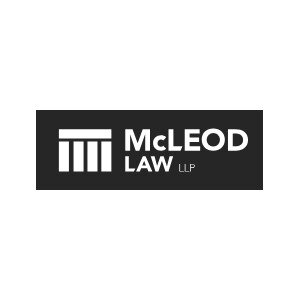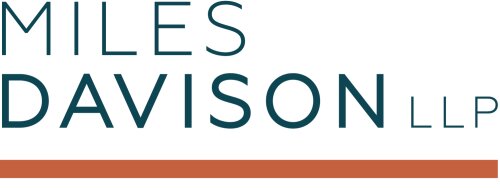Best Bankruptcy Lawyers in Canada
Share your needs with us, get contacted by law firms.
Free. Takes 2 min.
Or refine your search by selecting a city:
List of the best lawyers in Canada
About Bankruptcy Law in Canada
Bankruptcy in Canada is a legal process governed by the Bankruptcy and Insolvency Act (BIA), designed to provide relief to individuals and businesses facing overwhelming debt. By declaring bankruptcy, debtors can eliminate most of their debts, allowing them a fresh financial start. The process involves surrendering certain assets in exchange for the discharge of debts. It is supervised by a Licensed Insolvency Trustee (LIT), a government-regulated professional, to ensure fairness to both the debtor and creditors.
Why You May Need a Lawyer
There are several situations where seeking legal advice when considering bankruptcy could be beneficial:
- If you are unsure whether bankruptcy is the best option, a lawyer can help explore other debt relief options like consumer proposals or debt consolidation.
- If your financial situation is complex, such as owning multiple properties, or being involved in a business, legal advice can clarify potential impacts.
- If a creditor disputes your discharge or raises objections during the bankruptcy process, legal representation could be necessary.
- For guidance on how bankruptcy might affect your future financial standing, including credit rating and ability to obtain loans.
- If you are facing legal actions from creditors, such as wage garnishments or lawsuits.
Local Laws Overview
The Bankruptcy and Insolvency Act is federal legislation that applies across Canada. Under the BIA, each debtor is required to surrender certain assets, attend credit counseling sessions, and comply with the terms set out by the Licensed Insolvency Trustee. Key aspects of Canada's bankruptcy laws include:
- Exemptions: Every province and territory have their own rules regarding exempt assets, which could include personal belongings, tools of the trade, and a vehicle up to a certain value.
- Record Keeping: Debtors must keep and provide records of their income and expenses throughout the bankruptcy process.
- Income Surplus: Depending on your household income, you may be required to make additional payments.
- Credit Impact: Bankruptcy remains on a credit report for six to seven years after discharge, affecting your ability to obtain credit.
Frequently Asked Questions
What is the role of a Licensed Insolvency Trustee (LIT)?
The LIT is a federally regulated professional who administers the bankruptcy process, ensuring compliance with the BIA, protecting the rights of both debtor and creditors, and guiding debtors through the proceedings.
Will I lose all my assets in bankruptcy?
No, you will not lose all your assets. Every province and territory in Canada has specific exemptions allowing you to keep certain personal items, necessary household furniture, and possibly a vehicle and tools required for work.
How does filing for bankruptcy affect my credit score?
Bankruptcy will have a significant negative impact on your credit score. It remains on your credit report for six years after discharge for a first-time bankruptcy, and it could be longer for subsequent bankruptcies.
Can bankruptcy clear all types of debt?
No, certain types of debt are not discharged through bankruptcy, such as child support, alimony, fines or penalties imposed by the court, and student loans if you have been a student within the last seven years.
How long does bankruptcy last?
For a first-time bankrupt with no surplus income, bankruptcy usually lasts nine months. However, if you have surplus income or have filed for bankruptcy before, it could take longer.
Can I declare bankruptcy without a lawyer?
Yes, you can declare bankruptcy through an LIT without a lawyer, but legal advice may be beneficial depending on your circumstances.
What is a consumer proposal?
A consumer proposal is an alternative to bankruptcy where you negotiate to repay a portion of your debt over a longer period, up to five years. It is also administered by an LIT.
Can my wages be garnished during bankruptcy?
Once you file for bankruptcy, most wage garnishments will be stopped, with the exception of garnishments for child or spousal support.
What happens to my existing loans and credit cards?
Most of your existing unsecured loans and credit card debts will be eliminated, but your credit cards will be cancelled. Secured debts, like mortgages and car loans, must be maintained if you wish to keep the associated assets.
Am I eligible to file for bankruptcy?
You are eligible to file for bankruptcy in Canada if you owe at least $1,000 and are unable to pay your debts as they come due.
Additional Resources
Several resources can provide further information and assistance regarding bankruptcy in Canada:
- Office of the Superintendent of Bankruptcy Canada: Offers comprehensive information about the bankruptcy process and regulates Licensed Insolvency Trustees.
- Canadian Bar Association: Provides resources and connections to bankruptcy lawyers for detailed legal advice.
- Credit Counseling Canada: Offers credit counseling services that might help identify alternatives to bankruptcy.
- Provincial and Territorial Consumer Affairs Offices: These offices can provide region-specific information and resources regarding bankruptcy exemptions and local procedures.
Next Steps
If you are contemplating bankruptcy or need legal assistance with the process, consider taking the following steps:
- Consult an LIT: Find a Licensed Insolvency Trustee to discuss your financial situation and explore debt relief options.
- Seek Legal Advice: If your case is complex or if you're facing creditor disputes, finding a lawyer specializing in bankruptcy law may be beneficial.
- Attend Credit Counseling: Mandatory in the bankruptcy process, credit counseling sessions can provide insights into managing finances and avoiding future insolvency issues.
- Develop a Financial Plan: Work on creating a financial management plan with or without professional help to rebuild credit and stabilize your financial future post-bankruptcy.
Lawzana helps you find the best lawyers and law firms in Canada through a curated and pre-screened list of qualified legal professionals. Our platform offers rankings and detailed profiles of attorneys and law firms, allowing you to compare based on practice areas, including Bankruptcy, experience, and client feedback.
Each profile includes a description of the firm's areas of practice, client reviews, team members and partners, year of establishment, spoken languages, office locations, contact information, social media presence, and any published articles or resources. Most firms on our platform speak English and are experienced in both local and international legal matters.
Get a quote from top-rated law firms in Canada — quickly, securely, and without unnecessary hassle.
Disclaimer:
The information provided on this page is for general informational purposes only and does not constitute legal advice. While we strive to ensure the accuracy and relevance of the content, legal information may change over time, and interpretations of the law can vary. You should always consult with a qualified legal professional for advice specific to your situation.
We disclaim all liability for actions taken or not taken based on the content of this page. If you believe any information is incorrect or outdated, please contact us, and we will review and update it where appropriate.
Browse bankruptcy law firms by city in Canada
Refine your search by selecting a city.














